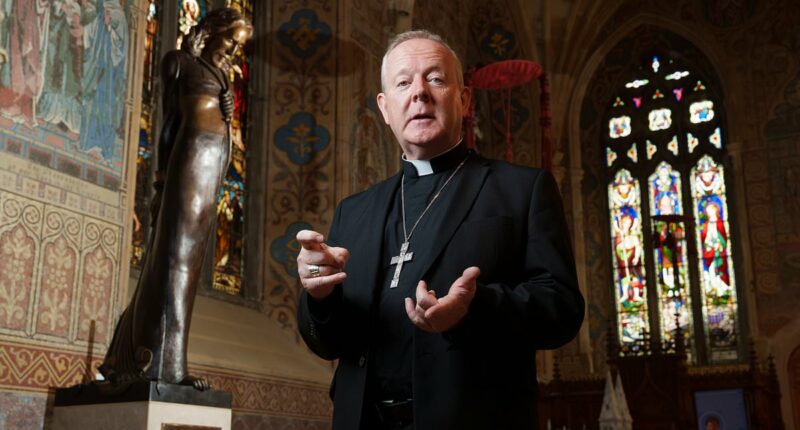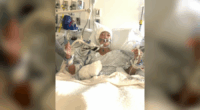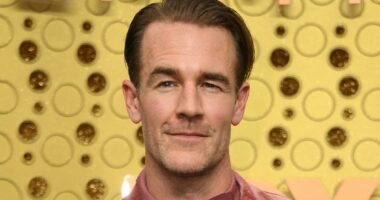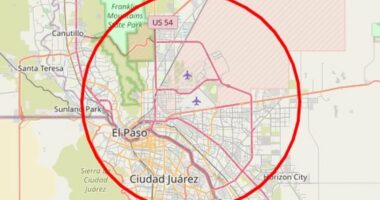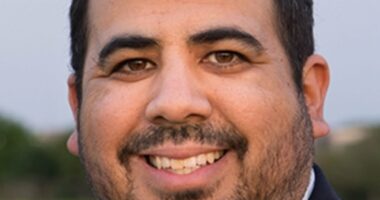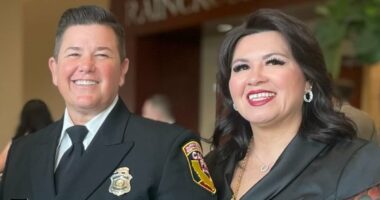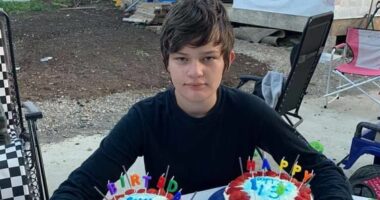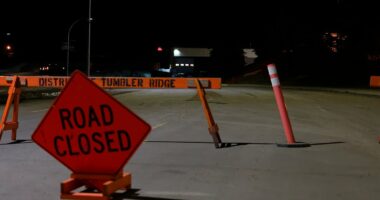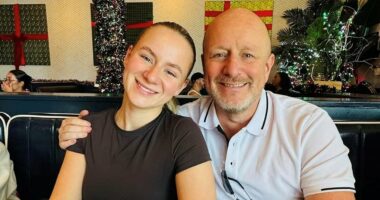Share this @internewscast.com
Today, pastoral letters from the Irish Bishops will be read in 1,300 Catholic parishes across Ireland. Titled “Why Sunday Matters,” this initiative aims to encourage practising Catholics to return to Mass after a noticeable decline following Covid.
Although Mass attendance concerns mainly the Church, the topic of Covid, for Eamon Martin, the Primate of All-Ireland and President of the Irish Bishops Conference, underscores the need for better engagement between the Catholic Church and the Irish State.
A formal assessment of the State’s Covid-19 response has started. A significant issue for those who lost loved ones during the pandemic was the funeral restrictions, which are still a source of pain for many. Interestingly, the Catholic Church, integral to traditional Irish burial practices, was not directly involved in the evaluation process.
‘We provided feedback regardless, reflecting on Covid and our takeaways from it,’ says Archbishop of Armagh, Eamon Martin, speaking to the Irish Mail on Sunday from his residence at Ara Coeli, situated on the grounds of St Patrick’s Cathedral, Armagh.
‘It was indeed a challenging time when people needed their faith and a connection with God. It also, fascinatingly, highlighted the need for a regular, comfortable platform for Church and State dialogue during such crises.
‘It became quite interesting as the Archdiocese of Armagh includes parishes both in Northern Ireland and the Republic of Ireland, frequently dealing with two sets of regulations and jurisdictions.’
‘And it was very interesting; there was actually a greater openness to engaging with faith and with churches in Northern Ireland than there was from Dublin. I think it highlighted the need for an effective Church-State mechanism,’ Archbishop Martin adds.
Such a mechanism exists, set up by former Taoiseach Bertie Ahern, largely to comply with Article 17 of the EU’s founding document which asks that all member states have an ‘open, transparent and regular’ dialogue with religions and faiths of all kinds. As it happens, the next meeting of the Church-State Dialogue is tomorrow. But when I call the Government Press Office (after the interview) to confirm details, the press officer admits this is news to him before later confirming the meeting. An indication of what the Archbishop was getting at perhaps.

Archbishop Eamon Martin does not believe a United Ireland inevitably leads to a return to violence
‘In Ireland, I don’t think it has been satisfactory. It tends to be called quite seldom. There’s only been a small number of these gatherings. And when they gather, we bring everybody. You’d have every possible faith organisation present. It’s usually quite short, and it’s really about, “well, are there any issues that we want to talk about?”
‘I think we need something much more deliberative, something more, I think, open and respectful of each other, because the Church has a lot to say, or faith groups, more generally, have a major contribution to make to society.’
Speaking of the forthcoming meeting he continues: ‘There’ll be a wide range of issues, but I’m not sure if we’ll really get deep down into any particular issue. I think it would be very helpful if in some of the major issues, let’s say, for example, housing. Let’s take, for example, migration. Let’s take examples like artificial intelligence issues; dignity of human life; abortion; places where there is huge concern about the direction of public policy. I think that it would be good to have maybe a standing arrangement where there can be input from churches.
‘We’re now at the situation, as reported in June, that it’s now one in six conceptions are ending in abortion, and that has to be an issue of concern. If one in six children or little ones are no longer at school, I do feel there has been a lack of discussion and debate on this issue, similarly, on the issue of assisted dying, and issues of the dignity of human life.
‘I think I’ve said before that I think public debate and policy is impoverished if it doesn’t have the voices of faith. But equally, so is our discourse. Our discourse as a church is impoverished if we don’t have that opportunity to engage.
‘This might be an issue, not just for the churches, but for all of civil society to be able to contribute, because that’s where you get this breakdown between Church and State, which we see at election time, people not voting, people not participating in referenda. That’s this, if we don’t work on democracy, something else, like social media or a more populist approach will take over.’
Asked to consider why that breakdown between Church and State has occurred, Archbishop Martin confronts the main catalyst for the Church’s demise head on.

Micheál Martin has served as Taoiseach since January this year and represents the Fianna Fáil party
‘I think there is no doubt that the impact of the abuse scandals, for example, the awful sins and crimes of people in the Church has, I think, damaged the credibility of the Church as a voice in society. I think that there’s probably not a lot of votes in engaging with church nowadays.
‘I’m still dealing in a large part of my work with historical abuse cases and their aftermath and legal cases and reaching out to victims and survivors. So I’m not saying in any way that issue should go away. I think it’s certainly with me for the rest of my life and perhaps for my successors as well.
‘It’s probably also the result of what has happened in Western democracy, where, you know, you do have a lot of populism, individualism, rather than organised religion, and engaging with organised religion. I think it’s changing somewhat, in many ways, where a more conservative extreme right has kind of pushed its way in through social media and has grabbed a lot of attention, which means that some of the issues which perhaps churches like ourselves could moderate, have now been taken over by ideological groups and that is causing an issue and a problem also, I think.’
We go on to discuss the idea of religion being almost inherently political throughout history in the context of Daniel O’Connell, the Liberator.
The 200th anniversary of Catholic Emancipation will take place in 2029, and Archbishop Martin views it as an opportunity to re-engage and educate a modern public with the Church’s key role in Irish history. Speaking about the Penal Laws, he points out it was not just Catholicism that was oppressed.
‘You know, for example, the Jewish community were impacted by the Penal Laws, Presbyterians were. And what that was about was in terms of the freedom to worship on one hand, but also religious freedom is much more than the freedom to worship. It’s the freedom to have an opinion and to express that opinion publicly, and we can see that, say, in the persecution of Christians worldwide today.
‘I think Catholic Emancipation provides a very useful backdrop for us to examine the role of the Catholic Church in Ireland, because 200 years on, we’re actually coming to the end of that chapter, where the Church is now no longer a dominant player in Ireland, the Catholic Church no longer dominates debate. It no longer has the same kind of position or status, or, dare I say, power, that it may have had in the past.
‘And therefore, that leads us to really ask ourselves, as a church, you know, where are we now? We’re a much smaller voice, and yet a significant voice at this time.’
One area the Catholic Church still has a political role to play will be in any proper consideration of a United Ireland. And it is not a topic, that the 63-year-old Derry-born cleric, who was ordained by Bishop Edward Daly – he of the raised white hanky on Bloody Sunday – shies away from.
Asked directly if he supports a United Ireland, he replied: ‘Yes, yeah.’ He qualifies his answer to stress he does not believe any level of violence is warranted in the pursuit of it, and the shape of a shared island should be up for discussion.
‘I think it really will be very interesting to see how the discussion surrounding a border poll and a shared Ireland actually continues over the course of the next five to 10 years, I think the Catholic Church, and indeed all of the churches on this island, I think, would want to play our part in these conversations and discussions and dialogue in order to perhaps encourage reflection on what is their actual vision for an Ireland of a united Ireland? What will its values be, what’s its vision.
‘And I think coming back to our conversation about Church-State dialogue, I think the churches and indeed other voluntary groups and community groups have not really yet become hugely involved in this discussion.

A marginalised loyalism is already merging with a far-right, anti-immigrant extremism, with race riots breaking out only two months ago – beginning in Ballymena
‘And it’s certainly something that I have been trying to trigger in some way, that dialogue and conversation amongst the Christian churches on this island about where, where is religion in a shared Ireland? What is our voice? What do we want our voice to be, what are the values that we want to stand for, because we believe they are very relevant to any successful, prosperous, thriving and happy society.’
Asked what the Church’s official position would be in a border poll or if it would it take a back seat on the issue, he speaks deliberately. Perhaps because the Church is not one corporation – but a collection of dioceses, with each Bishop in absolute control of their area.
‘I don’t think we’ll take a back seat. Because, I mean, if you’re talking about, well, first of all, our membership will be voting in a border poll.
‘It’ll be very interesting to see how the issues of identity work out in a border poll. Will [it] be simply as straightforward; Catholics will vote yes; Protestants will vote no. I think that we have had in recent elections north of the border the emergence of this middle ground, perhaps not hugely, but it is there where people are saying, “well, what do we want of a shared Island?”
‘I can’t imagine the Catholic Church saying you must vote one way or the other, but they will probably want to examine the issues and be part of the conversation.’
And while he acknowledges Taoiseach Micheál Martin’s Shared Island unit in his department, he reserves some more criticism for Dublin.
‘I personally feel that It’s a pity that the southern Government has not made this more of an issue for conversation. There’s almost this sense we’ll keep pushing it, pushing it out there.’
One reason for that reticence is the fears of what such conversations might stoke. A marginalised loyalism is already merging with a far-right, anti-immigrant extremism, with race riots breaking out only two months ago – beginning in Ballymena, Co. Antrium.
Archbishop Martin does not believe a United Ireland inevitably leads to a return to violence, but he cautions a lot of discussions must be had before any border poll is brought to the table.
‘Right across Ireland at the moment, there’s an increased level of violence. Violence can easily be hijacked and used for purposes. You’ve mentioned how extreme groups, even today, are already fomenting violence on the streets over various social issues, and I think that there they can be easily hijacked for old causes.
‘Again, it is true also that, for example, loyalists and indeed, Republicans will celebrate and commemorate their, inverted commas, heroes of the past, which can be upsetting to people who were hurt and who had, maybe people who were murdered, who were killed, who were injured during the Troubles.
‘I think you’re right in saying that there is indeed a threat of violence, whether or not, the issue of the border would give cause for that. That’s why the conversations, the reflection, because we do have, sadly, a history of return to violence on this island, and what we need to do is make sure we do everything in our power to ensure that that is avoided.’
Can those conversations be had? Are they being had in the Church Leaders Group, an ecumenical group consisting of the heads of the main Christian faiths in Ireland?
‘I think it’s much more difficult for the Protestant community and for its church leaders to become involved in this discussion,’ Archbishop Martin admits.
‘The Catholic Church probably quite naturally, because it would never really, certainly, at the very beginning, would not have been in support of partition. I think that the Catholic Church will more than likely be open to this conversation, and much more open and perhaps even to become proponents of the border poll than, say, the Protestant community, who for them, it might be seen as a threat to their identity, a threat to their relationship with Britain.
‘And I think it is difficult to engage with the other church leaders on this matter. However, one of the things that people, other people, don’t realise is that they the churches in Ireland, are all-island churches.’
‘It’s the Presbyterian Church in Ireland, and it’s the Church of Ireland, the Catholic Church in Ireland, Methodist Church in Ireland. We already don’t recognize the border in that sense, as from the point of view of churches.’
As the Archbishop poses for pictures on the steps of St Patrick’s Cathedral, he points over at the Church of Ireland on the opposite hill. He reminds us that the Church of Ireland cathedral is built on the original ground that St Patrick founded his great stone church on.
During the reformation, the cathedral became Church of Ireland. Glorious as it is, St Patrick’s is only 150 years old, built after the famine.
Building for a different future then should come naturally to a man, who by ecclesiastical tradition, is St Patrick’s successor.
